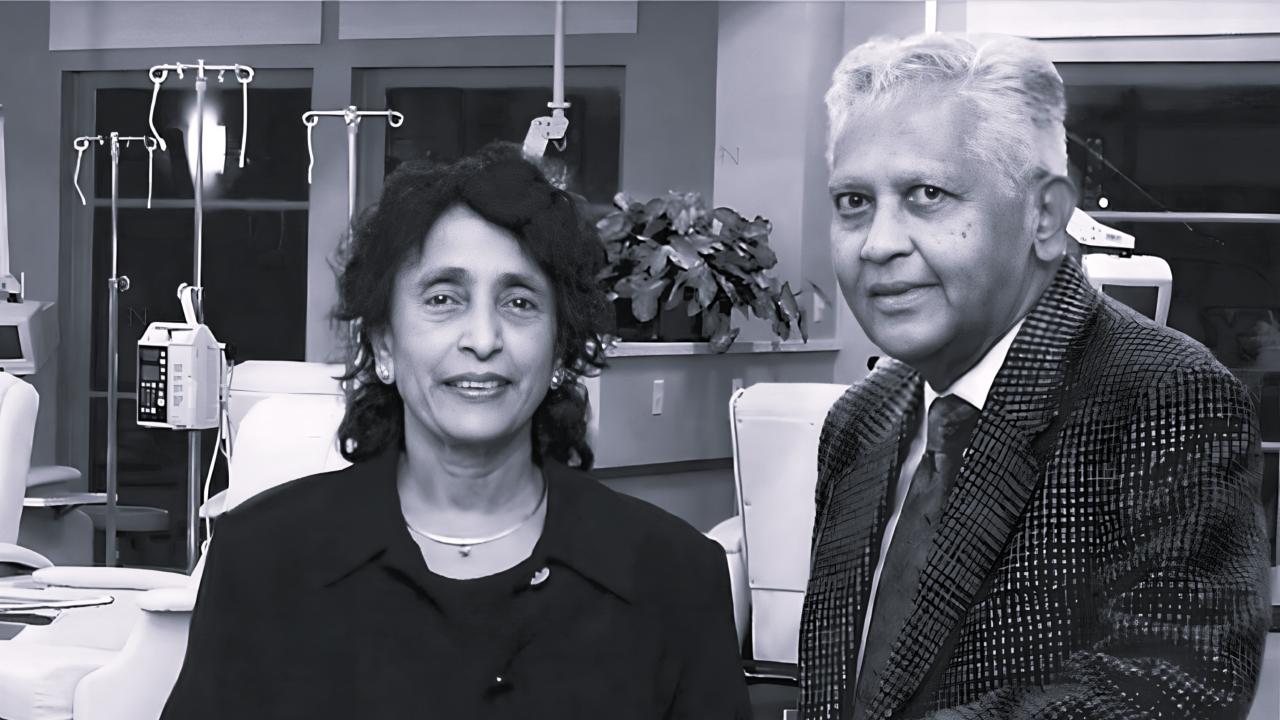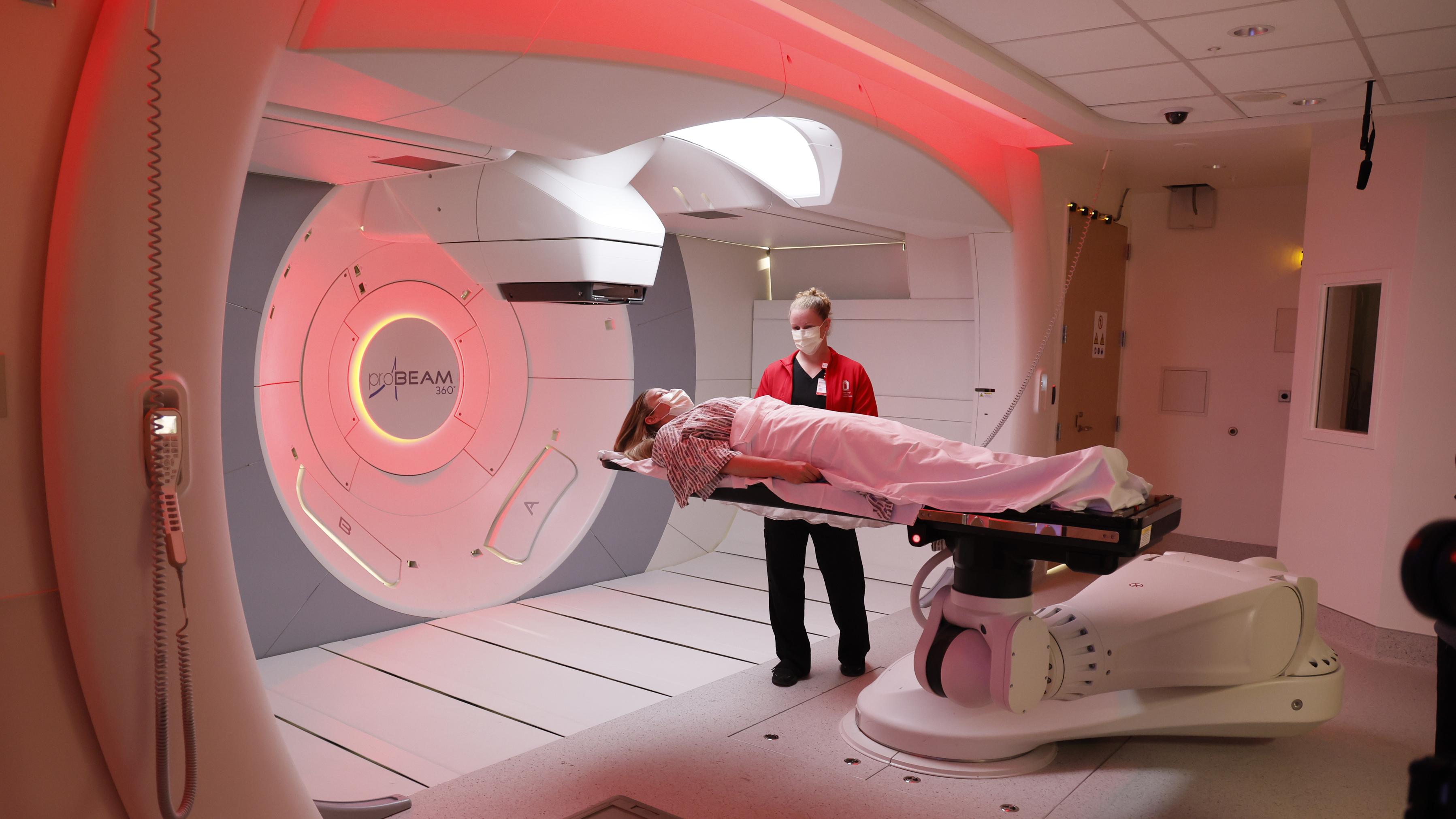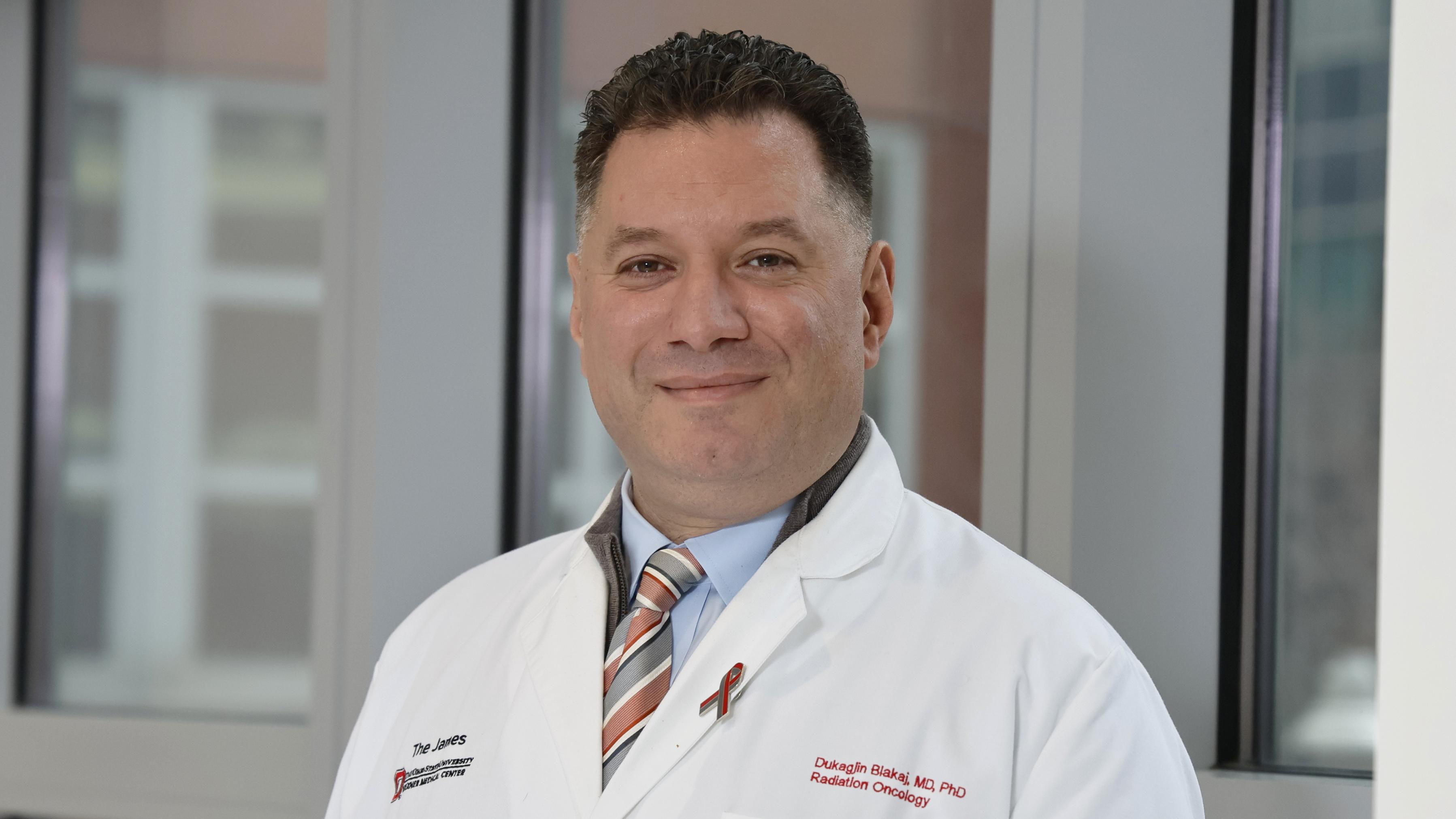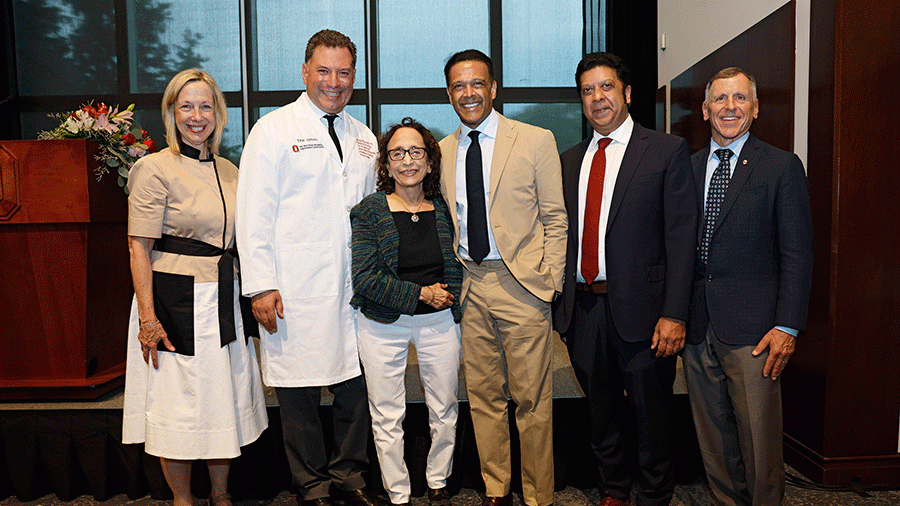Drs. Malati and Ganesh Potdar
Potdar Professorship Advances Cancer Care at Ohio State

“This professorship is more than a tribute — it’s a way to carry my husband’s values into the future,” says Malati Potdar, MD.
Her husband, Dr. Ganesh Potdar, devoted his career to serving others. As the first radiation oncologist in Springfield, Ohio, he brought vital cancer services to an underserved region and never turned away a patient based on ability to pay. His commitment to care — advanced, accessible and personal — left a lasting mark on the community he called home.
That dedication now extends into the future through the establishment of the Drs. Malati and Ganesh Potdar Professorship in Radiation Oncology — Proton Therapy at The Ohio State University Comprehensive Cancer Center — Arthur G. James Cancer Hospital and Richard J. Solove Research Institute (OSUCCC — James).
The OSUCCC — James was the natural choice for Malati to honor Ganesh’s legacy, as he regularly referred patients to the Division of Radiation Oncology.
“Dr. Potdar was unwavering in his vision of the development of future cancer therapies that would effectively eradicate disease with no collateral damage to healthy normal tissues,” says Arnab Chakravarti, MD, chair of Radiation Oncology at the OSUCCC — James. “The Potdar Professorship represents a living legacy of such a next-generation technology, components of which were developed right here at Ohio State.” The endowed position will support a faculty leader dedicated to advancing proton therapy, a precise and evolving form of cancer treatment that minimizes damage to healthy tissue.
A Shared Purpose
Malati and Ganesh met in India. She became an obstetrician-gynecologist; he trained first in surgical oncology before focusing on radiation therapy. The couple immigrated to the United States in 1975, expecting to stay only a few years.
Ganesh accepted an invitation to join what would become Springfield’s first dedicated oncology department. At the time, local hospitals lacked cancer treatment and infrastructure and often referred patients to larger cities. His arrival marked a turning point.
“He saw a need and filled it,” Malati says. “He wanted to bring quality care close to home.”
She also practiced for decades in the region as an OB/Gyn. Together, they became trusted advocates for patient access and equity. Their careers reflected a shared belief that medicine is a calling, and above all, health care should be guided by compassion.
The couple retired in 2004, spending time abroad with family. Ganesh died in 2018.

Proton Therapy: A New Frontier in Radiation Oncology
Proton therapy represents a significant advancement in the field of radiation oncology. Unlike traditional radiation, which uses X-rays, proton therapy uses charged particles to precisely target tumors — delivering higher doses to cancer cells while sparing surrounding healthy tissue. This level of precision is especially beneficial for treating tumors near critical organs or in pediatric patients.
Still relatively new and available at only a select number of academic medical centers nationwide, proton therapy holds enormous promise. But its continued development requires both clinical application and research to refine treatment protocols, understand long-term outcomes and expand access.
That’s where the work of the Potdar Professorship and Dukagjin Blakaj, MD, PhD, comes in. A radiation oncologist and physician-scientist, Dr. Blakaj is leading efforts to expand the potential of proton therapy at The James. His research explores how this therapy can more effectively be personalized to each patient’s cancer and biology — advancing science while improving care.

Advancing Innovation and Impact
The idea to create an endowed faculty position began taking shape after Malati visited Ohio State’s proton therapy center and spoke with Dr. Blakaj. She was moved by the technology’s potential and the caliber of experts driving its evolution.
“Proton therapy can reduce side effects and shorten treatment duration for patients,” she says. “It’s exactly the kind of progress my husband would have supported.”
Dr. Blakaj is the inaugural holder of the Potdar Professorship. The professorship will support his research, clinical care and mentorship, enabling new discoveries and enhancing patient treatment.
Dr. Blakaj says he is honored and grateful to hold the position. “These are exciting and challenging times in cancer research, and this professorship is an incredible opportunity to move both our institution and our research vision forward,” he says. “As an academic physician, I’m so thankful to have the chance to do this work.”
An immigrant himself, Dr. Blakaj sees the Potdar family’s gift as something larger. “It’s the American story. What makes this country so special is the opportunity to build something meaningful — and then give back,” he continues. “If I’m ever in a position to do the same, I will. This professorship honors Dr. Potdar’s legacy and shows that his vision for advancing cancer care is alive and strong.”

Honoring the Past, Investing in the Future
To those who knew him, Ganesh was steady, generous and driven by faith. He led by example, cared deeply for his patients and believed that medicine was a lifelong act of service.
Malati still thinks often of her husband’s principles — lessons passed down, which guided his life and career: Respect everyone. Be kind to those who have less. Smile first. Help others with no expectation of return.
“These weren’t just words,” she says. “They were the way he lived, every single day.”
And now, they will continue — in the lab, the clinic and the community — through the work of a professorship that bears his name.